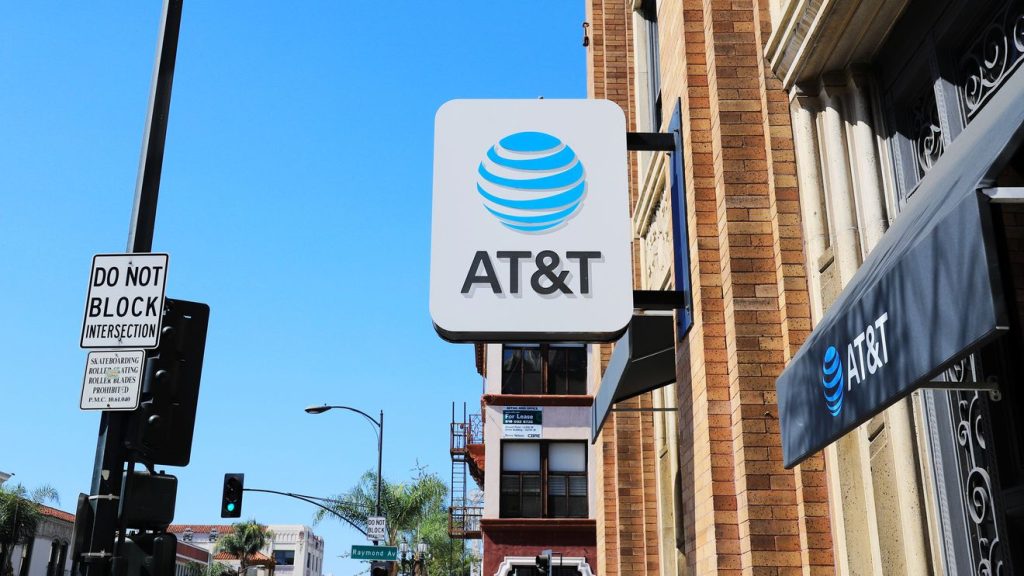Shares of AT&T Inc. were surging more than 7% Thursday as the company topped free-cash-flow expectations for its latest quarter and upped its full-year forecast for the closely watched metric.
The telecommunications giant posted $5.2 billion in free cash flow for the third quarter, exceeding the consensus view, which called for $4.8 billion. The company now expects about $16.5 billion in free cash flow for the full year, while it previously called for at least $16 billion.
Free cash flow is of key importance to AT&T
T,
+0.79%
investors given the company’s sizable dividend, and while management has expressed confidence in the 2023 target all year long, Wall Street had been showing a bit more caution, especially earlier in 2023 when AT&T fell short on the metric for the first quarter in a development it said was due to misaligned timing expectations.
“The guidance is well above the $8 billion in annual dividend payments,” Edward Jones analyst David Heger said in a Thursday note to clients. “We believe that the
company is executing well in a slower industry environment, and that its network investments will position it for steady future growth.”
Chief Financial Officer Pascal Desroches said the company has been working to improve balance-sheet flexibility as it pays down debt and incrementally reduces its short-term direct-suppler and vendor-financing obligations.
“As a reminder, the pay down of these obligations is a headwind to free cash flows,” he said on the earnings call, according to a transcript provided by Sentieo/AlphaSense. “We are reducing these liabilities in a high-interest-rate environment, which will help contain our cash interest costs. Therefore, I’m really pleased that we’re doing this while still exceeding our initial free-cash-flow targets for the year.”
He added that the changes should contribute to “a more ratable quarterly cadence of our free cash flow in 2024,” which is something that management previously said investors were looking for after the free-cash-flow miss in the first quarter.
The company posted 550,000 total postpaid net additions for the latest quarter, and it pointed to 468,000 postpaid phone net additions. Phone average revenue per user inched up 0.6% to $55.99, reflecting “pricing actions, higher international roaming and a mix shift to higher-priced unlimited plans,” according to the earnings release.
Chief Executive John Stankey said on the earnings call that customers have been “staying with us longer and spending more with us,” as the company’s highest-value unlimited plan is its fastest growing plan.
“While AT&T is the first of the services firms to report, we view the results as a positive data point that wireless postpaid phone net adds at the industry level is staying elevated, as cable promotions seem to be accelerating prepaid-to-postpaid migration,” Citi Research analyst Michael Rollins wrote in a note to clients.
The company’s performance on average revenue per user is “supportive of a stabilizing wireless competitive landscape,” he continued.
AT&T logged revenue of $30.4 billion for the latest quarter, up from $30 billion a year before. The FactSet consensus was for $30.2 billion.
The company posted net income attributable to common stock of $3.4 billion, or 48 cents a share, down from $6 billion, or 79 cents a share, in the year-earlier period. Results from the latest period reflected $600 million in severance charges and an 8-cent per-share negative impact from lower pension credits, among other factors.
Adjusted earnings per share came in at 64 cents, down from 68 cents a year before but above the 62 cents that analysts tracked by FactSet were projecting.
AT&T also recorded third-quarter adjusted earnings before interest, taxes, depreciation and amortization (Ebitda) of $11.2 billion, up from $10.7 billion a year before and above the $11 billion FactSet consensus. The company now expects at least 4% growth in adjusted Ebitda for the year, versus an earlier projection of at least 3%.
AT&T added a net of 296,000 fiber subscribers to bring its total above 8 million.
Read the full article here




